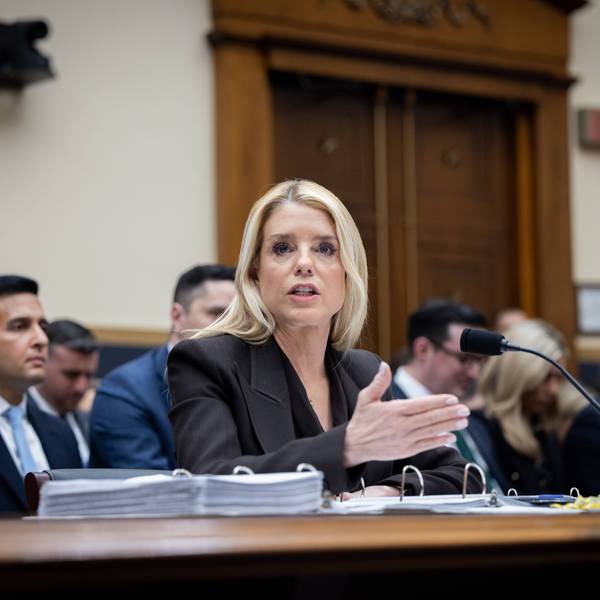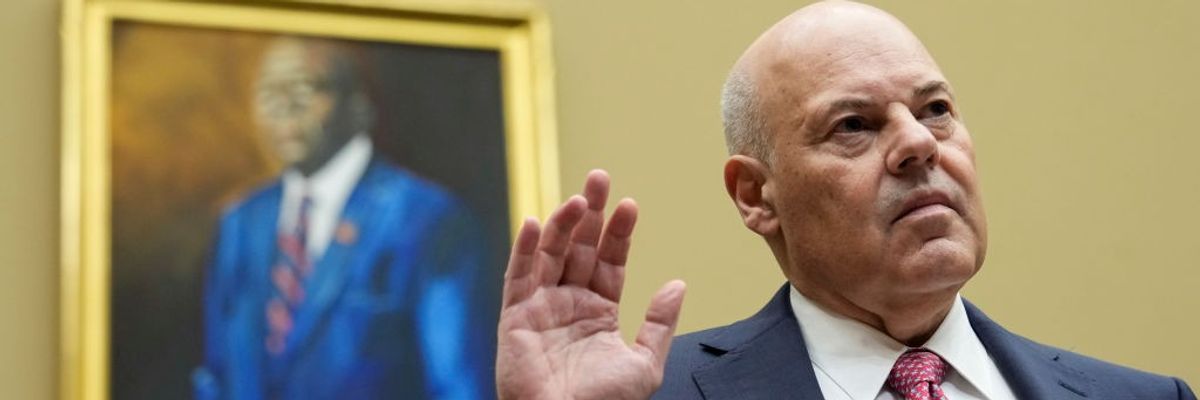Citing the concerns of postal employees in her district, U.S. Congresswoman Rashida Tlaib on Thursday asked the head of the United States Postal Service's accountability unit to launch an investigation into the impacts of Postmaster General Louis DeJoy's 10-year plan, an austerity overhaul critics warn could eviscerate one of the federal government's most venerable—and popular—agencies.
"DeJoy's 10-year plan appears to put the USPS on a fast track towards privatization, job cuts, negatively impacted service operations, and a culture of general dysfunction at one of our country's bedrock institutions," Tlaib (D-Mich.) wrote in a letter to U.S. Postal Service Inspector General Tammy Hull.
DeJoy, a major donor to then-President Donald Trump and the Republican National Committee, was installed as postmaster general in May 2020 by Trump-appointed members of the USPS Board of Governors. His appointment came after Trump's Office of Management and Budget recommended that the USPS—a constitutionally sanctioned agency with more than 600,000 employees—be privatized.
"I have spoken with countless USPS employees and managers in my area, all of whom are highly concerned that the 10-year plan poses a serious risk to the fundamental capabilities of the USPS."
The following March, DeJoy unveiled a 58-page 10-year-plan, Delivering for America, that contained austerity measures like reduced hours at some post offices, longer delivery times, consolidation of mail processing operations, and elimination of extra delivery trips. DeJoy said the plan would save the agency $160 billion over 10 years while making the postal service more efficient in the face of stiff competition from private-sector delivery services.
Critics, however, contended that the plan was part of a scheme whose ultimate objective was privatizing the postal service. Rep. Gerry Connolly (D-Va.), who at the time chaired the House Subcommittee on Government Operations, warned that the "draconian" proposal "guarantees the death spiral" of the USPS.
DeJoy has enjoyed a surprising second act during the Biden administration, as he has embraced policies including fleet electrification—although opponents argue he should still be fired for "dragging his feet" on the EV rollout and for his ongoing efforts to cut tens of thousands of jobs, consolidate operations, and hike customer prices.
In her letter, Tlaib asks Hull's office to find the answers to questions including:
- How will the 10-year plan affect coordination among essential local and regional operations of the USPS?
- How will moving to a region-led structure from a local-led structure affect local USPS jobs?
- Are there any protections in place to prevent USPS employees from being faced with a choice of commuting hours to work at a regional office or leaving their job entirely?
- What, if any, input from local district employees and managers was considered when the decision was made by DeJoy?
- Does this plan propose to limit existing or proposed new services overseen by USPS, such as postal banking, bill payment services, WiFi in parking lots, and public electric vehicle charging stations?
"Just as I have a responsibility to advocate for my residents at the federal level, USPS has a responsibility to ensure the highest level of service is provided to the public," Tlaib wrote in her letter. "I have spoken with countless USPS employees and managers in my area, all of whom are highly concerned that the 10-year plan poses a serious risk to the fundamental capabilities of the USPS."




